Excellence is the gradual result of always striving to do better, and this cannot be more true than of Rahul Nangare, the First Secretary (Trade) at the High Commission of India (HCI) in London. Rahul received the prestigious ‘Specially Distinguished Record of Service Award’ from the President of India for his outstanding work over a prolonged period of service, and the diplomat feels that his three-year tenure in London, when he faced a series of uncommon crises, gave him opportunities to serve the diasporas better as a representative of the Indian government.
Restitution and protection of India’s cultural heritage
Rahul played a key role in the restitution of three antique bronze idols of Rama, Sita, and Lakshmana, that were reportedly stolen from India in 1978. The idols have been virtually handed over to the Tamil Nadu government last month, will be dispatched from the IHC on 28 October, as we print, and reach Delhi in the next few days. The idols will be sent to Tamil Nadu shortly thereafter. Rahul opines that compared to the complex nature of the case, the restitution was done in the record time of a year and would have been quicker, had it not been for the pandemic.
The HCI London was informed by the Members of the India Pride Project of the missing idols in August 2019. Built during the Vijaynagara period in Tamil Nadu, the idols were reported to be with an art collector in London, a good-faith purchaser who handed over the Rama idol, along with the Sita and Lakshmana idols to the High Commissioner Mrs Gaitri Kumar.
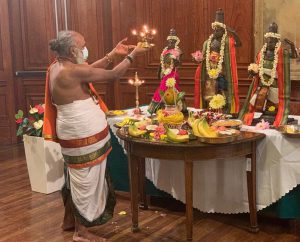
“This was a fascinating case to deal with, because we were provided with a simple information that there are some suspected stolen idols in London,” said Rahul. “We started coordinating with the Art and Antique Unit of the MET Police in London, reached out to the dealer who was suspected to be in possession of the idols, and the most important thing was that we managed to get a comprehensive 1978 theft report from that the Idol wing of Tamil Nadu Police,” he says.
However, the challenges were not over and the HCI had information of only one idol in London, that of Lord Rama. “Fortunately for us, the dealer had information of the remaining two – Sita and Lakshmana and voluntarily came forward to disclose that he had the other two and returned them to us. It was a fantastic case, successfully restituted through meticulous coordination and persuasion,” says Rahul.
HCI London’s success
So how does one assess the success in India’s efforts to protect and recover items of our cultural heritage? According to Rahul, for the past few years, the Government of India has given a renewed impetus to the protection of India’s cultural heritage. MEA along with the Archaeological Survey of India and India’s law enforcement agencies, such as the DRI, have been pursuing investigations towards restitution of our stolen and smuggled antiquities.
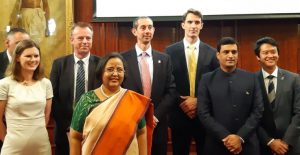
“Though restitutions have taken place from many countries such as the USA, Australia, Germany, and France, I’m particularly happy that HCI London has taken a lead in these efforts. The list of HCI’s past repatriations include, the Bramha-Brahmani sculpture, stolen from the World heritage site Rani-Ki Vav, which could be returned to the ASI in 2017; a 12th Century Bronze statue of Lord Buddha, restituted to the HCI by the London Metropolitan Police in 2018; two antiques – a 17th century bronze idol of Navanitha Krishna and a 2nd century limestone Carved Pillar motif returned to the HCI the Embassy of USA, London in 2019 and the Natesha Shiva statue stolen from the Ghateshwar temple, Baroli in Rajasthan in 1998, which was repatriated to the Archaeological Survey of India (ASI) in July this year,” confirms Rahul.
He said the most important outcome of successful repatriations is that the Museums, art dealers, galleries, and private collectors all over the world have now taken notice of the fact that India is very serious about claiming back its stolen and smuggled antiquities.
“Our recent cases have demonstrated that we are able to back our claims with solid documentary evidence in each case. For example, take the case of the 12th Century Buddha statue, which was repatriated on the 15th August 2018. This statue was stolen almost 60 years ago in 1961 from Nalanda in Bihar. In this case, the ASI provided us with the police FIR of the theft filed in 1961 along with photographs, which proved to be the clinching evidence.”
“Similarly, in the present case of Lord Rama, Sita, and Lakshmana idols, the Idol Wing of the Tamil Nadu police could trace the theft to a remote village in Tamil Nadu and provide us with a clear theft report filed 42 years ago in 1978,” he says. What do we see as the way ahead for successful repatriations in the future?
“We have established excellent working relationships with foreign law enforcement agencies such as the London Metropolitan Police and the US Homeland Security Investigations (HSI). Such relationships need to be further developed and nurtured. We also need to further strengthen the cooperation and collaborative efforts among Embassies, the ASI and other Indian law enforcement agencies such as the DRI, CBI and State police to ensure that we get quicker and accurate responses from them to establish the thefts. Another important aspect is that we need to have comprehensive photo archives of our temples and other antiquities and also need to maintain a strong database of police records and photographs of stolen antiquities. This point was emphasised by our High Commissioner in her remarks during the recent repatriation.”
Last but not the least Rahul opines that there is need to encourage and supplement the efforts of the activists and crusaders such as the India Pride Project, who are working so passionately in this field. The ‘Bring our Gods Home’ movement has highlighted the important aspect that these cases should not be treated as cases of mere art thefts. These idols displayed in museums and galleries are no doubt beautiful pieces of art but more importantly, these were objects of our faith and devotion and were stolen from living temples, where they were worshipped. “It is very heartening to see that museums and dealers are now appreciating this aspect and voluntarily coming forward for restitution of such idols,” he says.
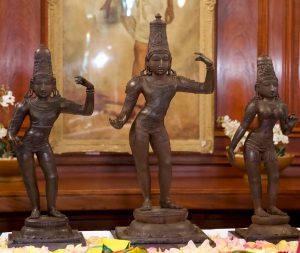
Post-Covid, post-Brexit Indo-UK relations
The Transition period for the Brexit ends on the 31 December, 2020 and according to Rahul there will be greater opportunities for Indian exporters and importers to make use of the new UK Global Tariffs announced by the UK from 1 Jan 2021.
“These tariffs have simplified, rationalised, and reduced tariffs on a number of items. The Post Covid recovery and growth projections would further boost the bilateral trade. The fundamentals of both our economies are very strong, we both are strong stable democracies respecting rule of law and freedoms of its citizens,” he says.
The High Commissioner, Mrs Gaitri Kumar, recently highlighted this aspect when she remarked that the convergences and close co-operation on most global issues – including climate change, renewable energy, clean energy, disaster-resilient infrastructure, combating terrorism, our shared commitment to multilateralism, reform of the UN, and the preservation of a rules-based international order, make us natural partners.
We can expect more joint initiatives in areas such as medicine, technology, space and finance. The collaborative efforts between Oxford and the Serum Institute of India for an affordable and widely accessible coronavirus vaccine is a prime example of India-UK collaboration, says Rahul.
Managing the diasporas during the pandemic
The High Commissioner, Mrs Kumar beautifully summed up HCI’s efforts during the lockdown in her Independence Day address, when she remarked, “Our countrymen and women threw open their doors and hearts to help students and others during the lockdown. This is the spirit of our community, not only a Living Bridge, but also a loving one. The High Commission of India complemented the selfless efforts of our community and worked day and night to help more than 28,000 stranded Indians reach their homes in India and bring back over 14,000 British citizens.”
“This was one of the most unique experiences of all the officials working in the Indian High Commission, where you have thousands of Indians stranded in London,” says Rahul. Generally the High Commissions and Embassies help their citizens to go back to their countries, but this was a situation when we were helping them to stay in London comfortably till the flights resumed.
“We had to help them with accommodation, food and medicines. We are really happy that the Indian diasporas, in the UK, the British Indians came forward and complimented our efforts in providing help to the stranded Indians.
“We had opened our emergency phone lines, we were getting many emails. We made a list of the diaspora organisations who had said they were happy to come forward and help. We were connecting the stranded with them, and they rendered them all the help they could,” says Rahul.
The High Commission was coordinating all the efforts, to make sure that anyone who approached them got the help that was required. Rahul was looking after the medical requirements and emergencies and contacted doctors of Indian origin. They connected the stranded Indians with the doctor associations and made sure their needs were met.
Another aspect of the work was when the flights resumed in the second week of May. “Our job was to make sure that the most vulnerable got a chance to board the first flights back home, and that the flights were utilised to the maximum capacity.” Since this had to be done manually, thousands of phone calls were made from the High Commission. “We had everyone from the High Commission working on this and nothing else, for nearly two months, making list of passengers, ensuring they reach their destination safely and we are happy all this worked out very well.” The High Commissioner and Deputy High Commissioner personally led this effort and made sure all the passengers reached India safely, confirms Rahul.
Diaspora engagement – the highlight of his tenure
One of the highlights of the last three years for Rahul has been the wonderful interaction with all the Indian diasporas in the UK. Most of the associations representing the different states of India are very active and they celebrate all the important festivals, hold key events, and they invite the High Commission officials. “So as a part of a diplomat belonging to the Indian High Commission, I got an opportunity to visit many events and the warm relations with the diasporas shows us the patriotic fervour and the deep bonds that the diaspora has with India. It’s always a pleasure to associate with the diaspora as a representative of the government of India,” he says.
Celebrating the Ganesh Chathurthi, as a Maharastrian was one of Rahul’s most cherished experiences and he is confident that these relationships will remain and last for a lifetime.
Talking about diaspora engagement, Rahul also remembers that the Indian High Commission was physically attacked twice last year, on 15 August, Independence Day, and the 5 September. “The role of the diaspora during that time was standing firm behind the High Commission, giving all the support was very much appreciated and that actually shows that all British Indians and Indians in the UK are firmly with us and oppose divisive forces.”
Rahul cherishes working with progressive groups formed by the diasporas, like the Overseas Maharashtrians Professional and Entrepreneur Group (OMPEG) and the Indian Professional Forum (IPF). “We organised events in the High Commission along with OMPEG so assisting and helping the efforts of upcoming progressive diaspora organisations has always been an important aspect of work for the High Commission. We are very happy that Indian origin entrepreneurs and professionals are coming together and doing well in all the fields.” Rahul’s tenure in the UK will be ending shortly, and we from Global Indian Stories wish him good luck for his next role.
Smita is a multi-cultural freelance journalist, writer, and filmmaker based out of the US, London, Hong Kong, and India. Global Indian Stories is her brain-child. Created to chronicle diaspora stories written by Indians of all age groups, from different walks of life across the globe, Smita makes sure that the platform remains inclusive and positive.
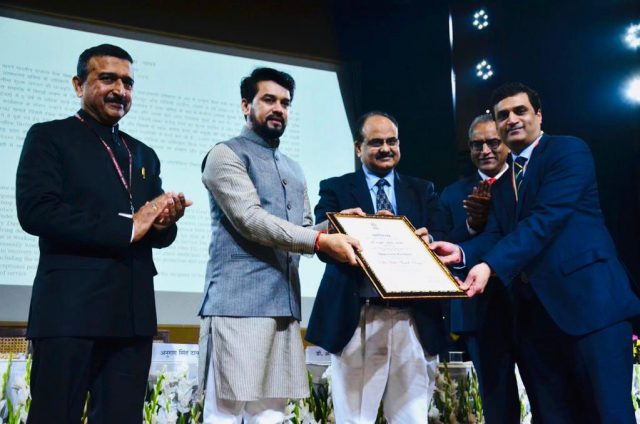
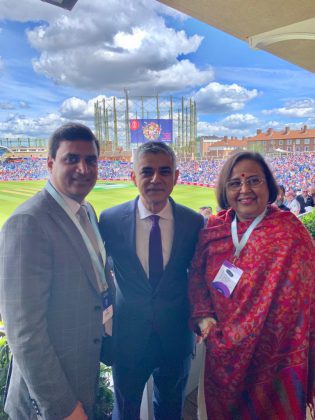
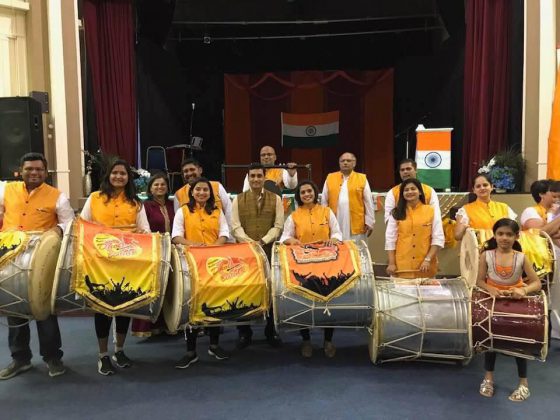
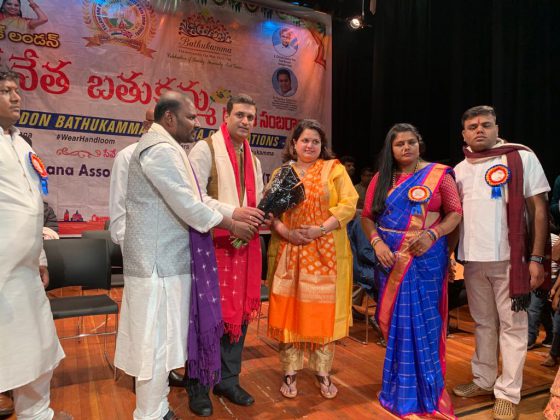
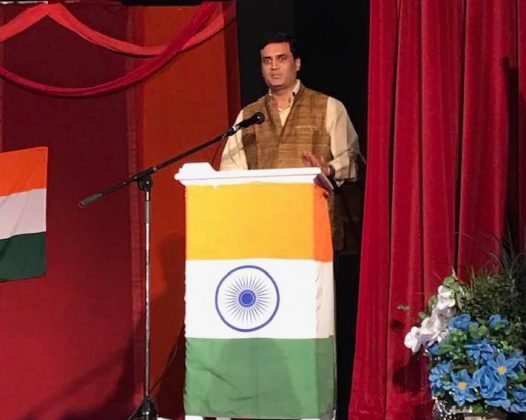
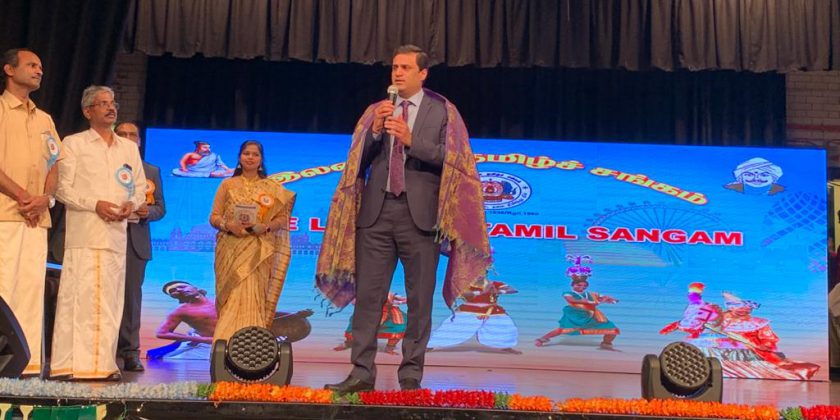
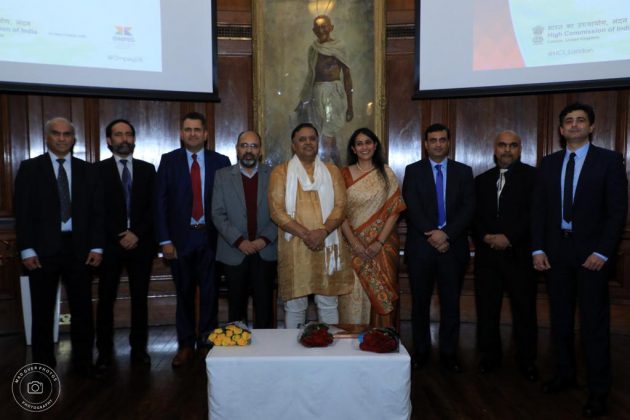

![Powerful Pride documentary Legendary Children [All Of Them Queer] streaming very soon](https://globalindianstories.org/wp-content/uploads/2025/06/Legendary-streaming-release-featured-238x178.jpg)



![Powerful Pride documentary Legendary Children [All Of Them Queer] streaming very soon](https://globalindianstories.org/wp-content/uploads/2025/06/Legendary-streaming-release-featured-100x75.jpg)

